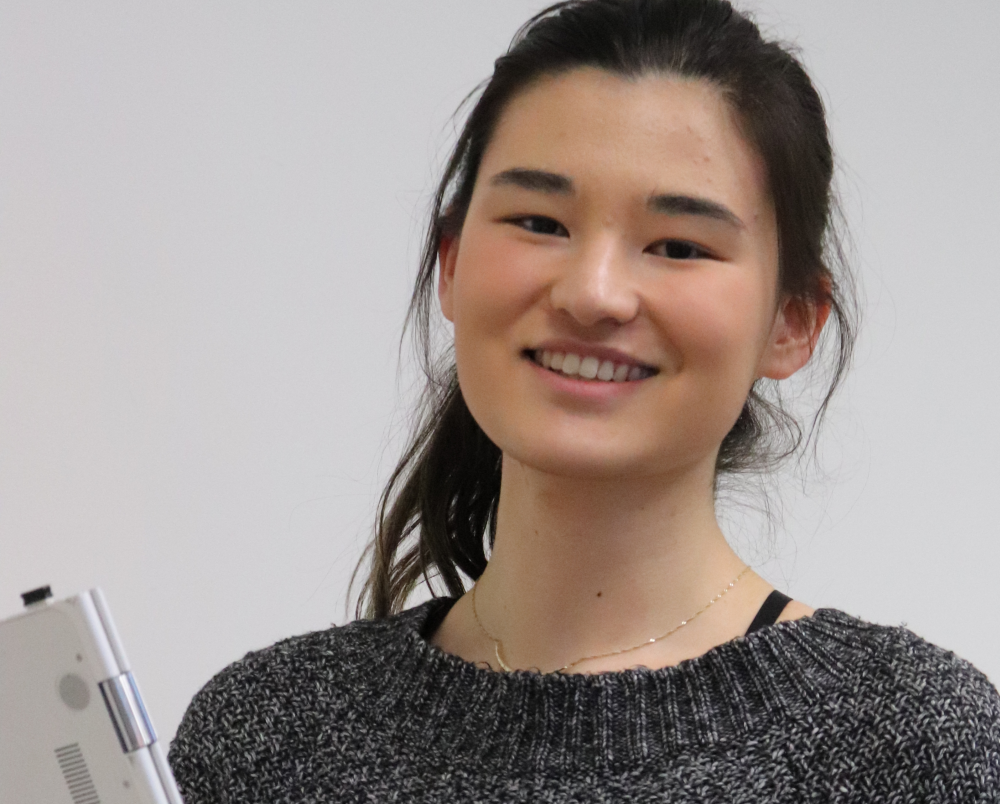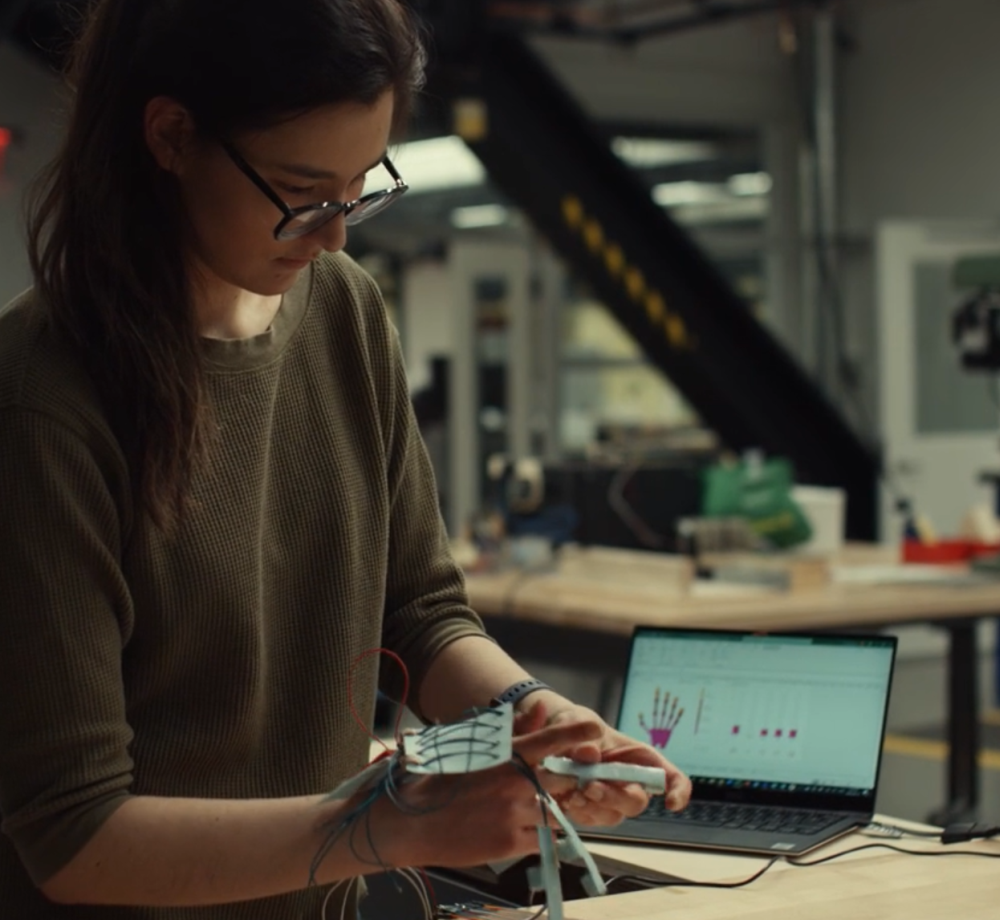2020 William Muir Edwards Citizenship Award: Portia Rayner
Donna McKinnon - 1 April 2022

Portia Rayner dreams big and acts to realize those dreams, but dreams, she says, cannot be realized without the fundamental building blocks of equality and education.
It is this commitment to a better future that drove Rayner to pursue mechanical and biomedical engineering not as just a field of study, but as the catalyst for change.
In the summer between high school and her first year of engineering, and again the following summer, Rayner volunteered as a Junior Instructor in the faculty’s DiscoverE program, helping to deliver STEM education to children from kindergarten to grade nine. Her engagement and curiosity stood out among her peers, piquing the interest of both engineering professor Steven Knudsen and Raymond Matthias, Strategic Advisor to Associate Dean, Outreach.
“We came to the mutual realization that we were dealing with an extremely resourceful and proactive individual who was going to be someone to follow,” says Matthias.

In the first year of her program, Rayner approached Knudsen about a proposal for a project that he believed would be a perfect fit for The Pod, an alumni-based mentoring organization and “maker space” focused on supporting student-initiated and led projects with a focus on innovation and entrepreneurship. Rayner had identified a U of A biomedical engineering group working on prosthetics with a number of open source projects, and she and her partner began work on extending and enhancing a 3D-printable hand under the guidance of mentors, including Knudsen. Rayner says the goal of this ongoing, volunteer research is to develop a soft, robotic hand that will use a machine learning algorithm to recognize objects and respond with appropriate grasping mechanisms, improving user experiences.
“Over the past year and a half, I have discovered that Portia has many more interests and passions beyond just Biomedical Engineering,” says Knudsen. “It was no surprise that she is very interested in helping people, and learning how to help people. She has a deep-seated desire not only to work for the public good, but to actively engage the public in doing so.”
Building on her belief in the importance of outreach, Rayner raised $2,500 to deliver a two-day workshop for high school girls through the Ada Code Challenge, an initiative she launched in 2020 to teach the fundamentals of different programming languages.
“The girls learned to create code that was capable of producing a tangible output in the real world,” says Rayner. “Programming is an increasingly valuable skill in the digital age, but high school students, especially girls, have preconceived notions about it. I believe that by presenting how it would be useful in something that fascinates them, such as biomedical engineering, it is possible to spark a more wide-spread interest in STEM as a career.”
In one of her workshops, she taught grades 10-12 girls to program a 3D-printed heart to beat and vibrate in time with their own pulse.
As Matthias notes, the fundraising alone was a major accomplishment.
“She secured in-kind donations from a local industry, funding from both the Faculty of Engineering and the APEGA Foundation; and most impressively, she received Student Ambassador Grant funding from the Natural Sciences and Engineering Research Council of Canada (NSERC).”
Among her many outreach activities, Rayner became a mentor with the Female Engineering Mentorship (FEM) Program, primarily, she says, because she wished there had been a program like this when she was a high school student.
“I had little to no idea of the scope of engineering or the variety of careers I could choose to pursue after graduating,” she says. “I wanted to encourage interest in a program that I love and dispel some of the pervasive myths about it.”
She is also a coordinator with TeamUp Science, which runs annual STEM events which impacts hundreds of local junior and high school students.
To learn more about the academic publishing process, Rayner took on the role of editor with Spectrum, a U of A interdisciplinary undergraduate research journal. It’s a role she enjoys, she says, because it gives her the opportunity to learn about and share the amazing work being done across a wide range of faculties.
“Engineering promises a better future,” says Rayner. “I became involved with STEM education because I want to create a world where kids are free to pursue their love of science and engineering regardless of their background.”
Named in honour of the Faculty of Engineering’s founding professor, the William Muir Edwards Citizenship Award recognizes Engineering at Alberta undergraduate students who have made exceptional contributions to society. It’s a celebration of citizenship and of engineering students who go to extraordinary lengths to make our world a better place. Special thanks to the David Morris Family Foundation for supporting our students and making the William Muir Edwards Citizenship Awards possible.
Do you know an undergraduate student whose volunteerism, contributions, and efforts, both on-campus and off-campus, work to make the world a better place? Learn more about the nomination process here.